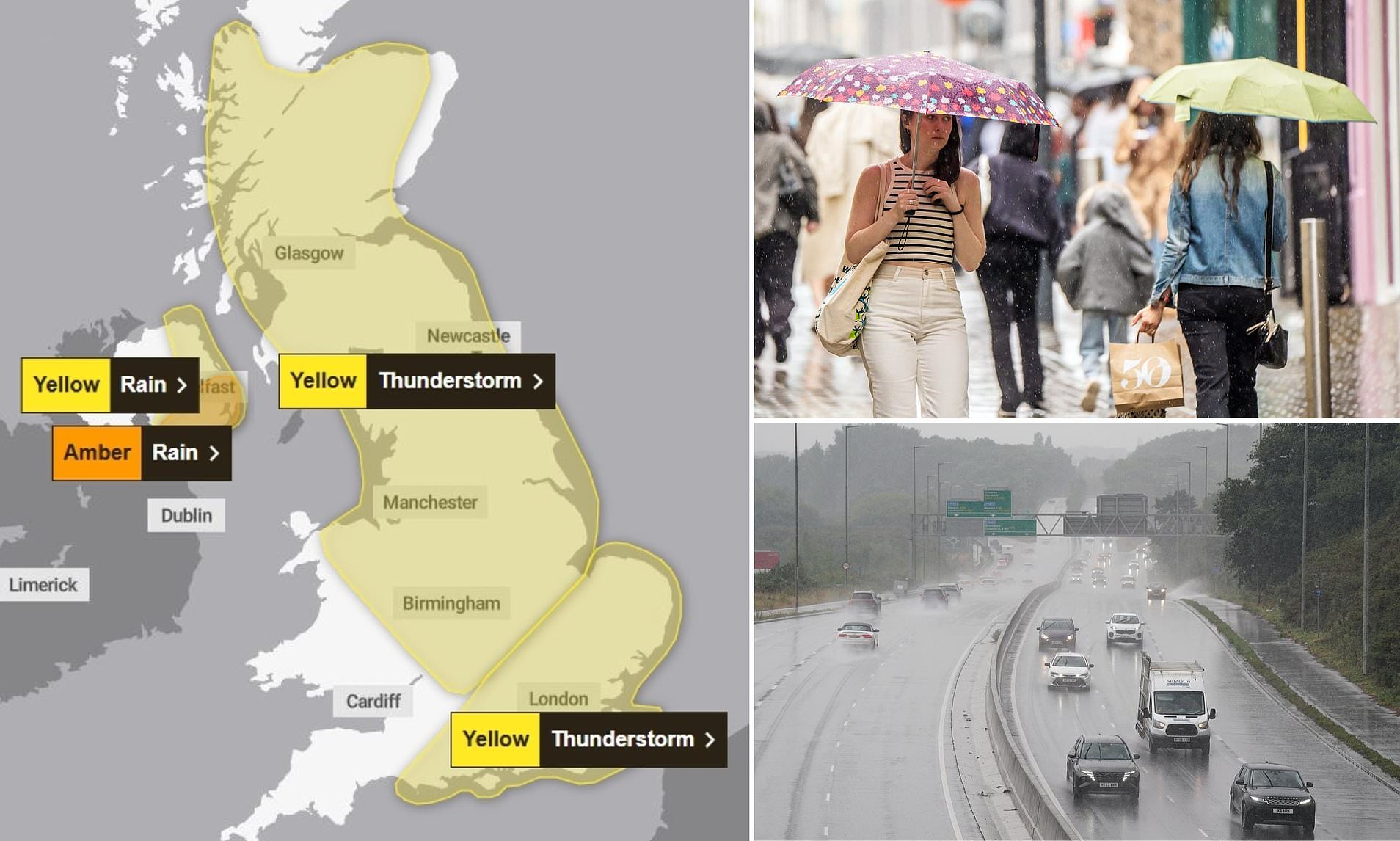Severe Weather and Water Restrictions Impact the UK
The UK is currently facing a period of intense weather, with thunderstorms and heavy rainfall expected to cause significant disruption. Most of Britain has been placed on a thunderstorm watch, as forecasters predict that up to half a month’s worth of rain could fall within a short timeframe. This has raised concerns about flash flooding, particularly in certain regions.
In England and Scotland, up to 40mm (1.6in) of rain may fall within just two hours, while Northern Ireland is expected to be the hardest hit, with up to 75mm (3in) of rain accumulating over 18 hours. These conditions are part of a broader pattern of severe weather that has led to multiple hosepipe bans across the country.
Hosepipe Bans Across the UK
The third major hosepipe ban of the summer began today, with Southern Water implementing restrictions for households in Hampshire and the Isle of Wight. This follows previous bans from South East Water in Kent and Sussex, which started last Friday, and Yorkshire Water, which introduced restrictions on July 11. A fourth ban from Thames Water will begin tomorrow, affecting areas such as Oxfordshire, Gloucestershire, most of Wiltshire, and parts of Berkshire.
Despite three consecutive days of heavy rain, groundwater reserves have not been significantly replenished due to the dryness of the ground, which prevents the water from penetrating deeply. As a result, the downpours have not been enough to lift the hosepipe bans. Yorkshire Water has confirmed that its restrictions will only be lifted when reservoir and groundwater levels return to acceptable levels, which may require several months of consistent wet weather.
Weather Warnings and Flooding Risks
Today’s weather warnings highlight the potential for heavy, thundery downpours across various parts of the UK. An amber weather warning for rain is in place for the east of Northern Ireland until 8am, with additional yellow warnings for thunderstorms in South East England and other regions. Forecasters warn that parts of County Antrim, Armagh, and Down could face flash flooding due to the intensity of the rain.
Met Office forecaster Simon Partridge noted that Northern Ireland could see between 50 to 75mm of rain within 12 to 18 hours, which is more than half a month’s average rainfall for the region. The heavy rain could lead to difficult driving conditions, with water pooling on roads and potential delays or cancellations for public transport.
Impact of Drought and Dry Conditions
The current weather patterns come after a dry and hot spring, along with three heatwaves this summer, which have left four regions of England in drought. England recorded its driest March to June period since 1893, according to the Environment Agency. Dry ground can increase the risk of flooding, as it is less able to absorb water.
Southern Water has recently implemented a hosepipe ban to protect rare chalk stream habitats, which are at critically low levels. The company is restricting activities such as watering gardens, filling paddling pools, or washing cars to conserve water. This move aims to safeguard the Test and Itchen chalk streams, which are vital to the region’s ecosystem.
Ongoing Efforts to Manage Water Resources
Tim McMahon, Southern Water’s water managing director, emphasized the necessity of the ban, stating that it is essential to protect the unique chalk stream habitats, which are compared to the Amazon Rainforest in their ecological significance. The company has been working around the clock to address leaks and improve efficiency, but these efforts have not been sufficient to meet the demand.
As the week progresses, the weather is expected to remain changeable, with showers likely and thundery downpours possible in the South East of England on Wednesday. Temperatures are expected to remain around the average for this time of year.
The combination of severe weather, water restrictions, and ongoing drought conditions highlights the challenges faced by the UK in managing its water resources. Continued monitoring and public cooperation will be essential in mitigating the impact of these weather events.






